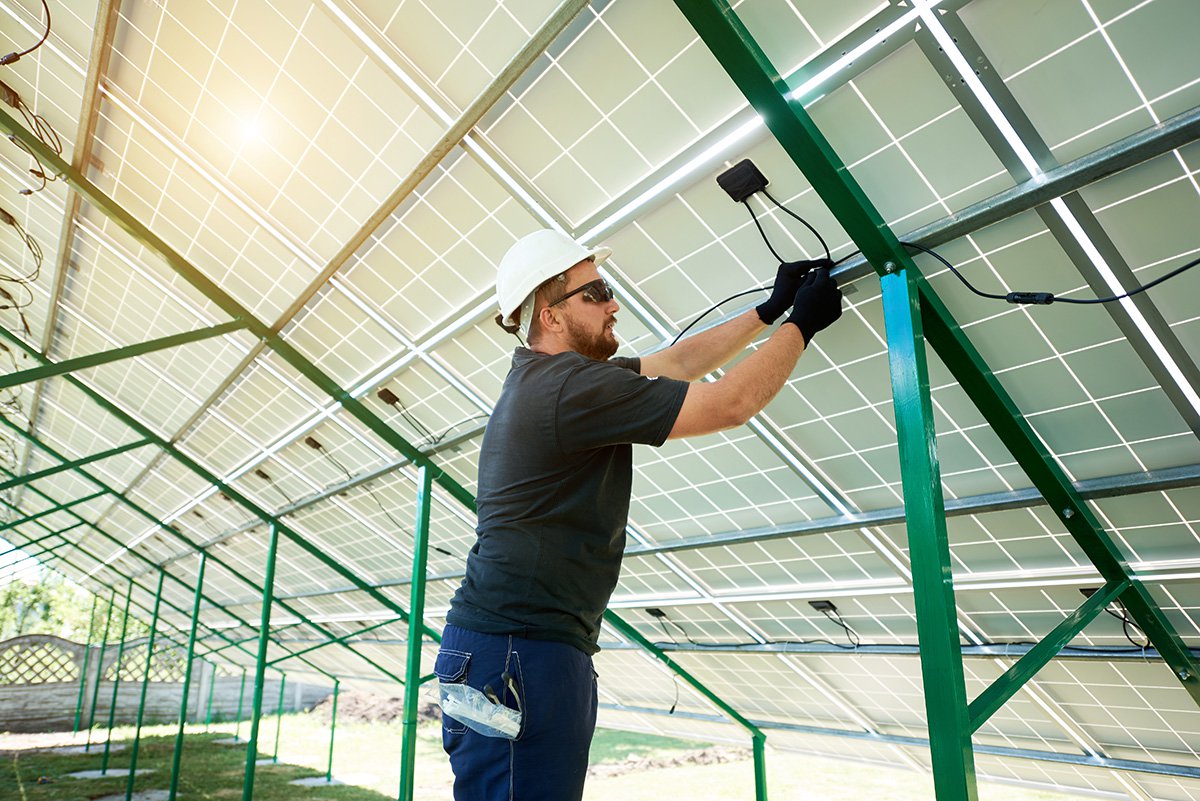
Solar systems are built to last for decades, but the wiring that connects every panel, optimizer, and inverter plays a crucial role in keeping everything running smoothly. When wiring issues develop, they can lead to sudden production loss, inconsistent monitoring data, inverter errors, or even system shutdowns.
Most homeowners don’t realize they have a wiring issue until their monitoring app shows zero production — or their system hasn’t generated power for days. The good news is that wiring problems are fixable, and with the right maintenance, they can be prevented entirely.
Here are the most common solar wiring issues Texas homeowners experience, how to spot them early, and when to schedule a professional diagnostic.
1. Loose or Corroded Connectors
Solar panels connect to each other with MC4 connectors — small components that click into place. Over time, these can become:
- Loose
- Corroded
- Exposed
- Misaligned
This is especially common after:
- High winds
- Roof replacements
- Storm debris
- Animal activity
Loose connectors often cause intermittent production or complete panel-level shutdown.
2. Damaged or Chewed Wiring
Wiring damage is a major issue in Texas, especially in areas with:
- Birds
- Squirrels
- Raccoons
- Rodents
Animals can chew through:
- Conductors
- Insulation
- Sensor wires
- Optimizer wiring
This leads to shorts, ground faults, and panel outages. Installing critter guard helps prevent future damage.
3. Water Intrusion in Conduit or Junction Boxes
Water intrusion happens when:
- Conduit seals crack
- Junction boxes are loose
- Flashing around penetrations fails
- Storm water travels into wiring channels
Moisture inside electrical components can cause:
- Corrosion
- Arc faults
- Short circuits
- System shutdowns
This is one of the most dangerous wiring issues and must be handled by a professional.
4. Poor Wire Management from Original Installers
Unfortunately, many systems across Texas were installed by companies that no longer exist, leaving homeowners with:
- Wires laying across shingles
- Exposed conductors
- Tangled or unsupported wiring
- Improper grounding
- Non-code-compliant routing
Sloppy workmanship increases the risk of:
- Production loss
- Fire hazards
- Damage during storms
- Faster wear and tear
Clean wire routing improves performance and protects your roof.
5. Failed Optimizers or Microinverters
If your system uses:
- Module-level power electronics (MLPE)
- Panel optimizers
- Microinverters
Then wiring issues can occur when these components fail. Symptoms include:
- Individual panels showing zero production
- Uneven performance across the array
- Monitoring showing “module mismatch” or “panel offline”
These failures are common in older systems or during extreme heat waves.
6. Ground Faults
Ground faults happen when live wiring contacts grounded metal. Causes include:
- Damaged insulation
- Pinched wiring
- Moisture
- Faulty connectors
- Aging equipment
Most inverters will shut down the system if a ground fault is detected to protect your home.
7. Wiring Damage After a Roof Replacement
One of the top causes of wiring damage happens during roofing work — especially when:
- Panels were removed by roofers instead of licensed solar technicians
- Wiring was pulled or stretched
- Connectors broke when panels were handled improperly
- Flashing was not replaced correctly
This is why every roof replacement with solar requires a professional detach & reset.
Warning Signs of Solar Wiring Issues
If your solar system is experiencing wiring problems, you may notice:
- Sudden drop in production
- Zero power generation
- Monitoring showing “offline”
- Some panels producing, others not
- Inverter error codes
- Burning smell near inverter or wiring
- Intermittent or fluctuating production
- Panels clicking on and off throughout the day
Do not ignore these signs — wiring issues worsen over time and can become dangerous.
How Solar Wiring Issues Are Diagnosed
A proper diagnostic includes:
- Voltage testing
- Connector inspection
- Thermal imaging
- Wiring continuity checks
- Checking inverter logs and error history
- Verifying grounding
- Examining roof penetrations
- Inspecting junction boxes and conduit
This ensures the root cause of the issue is found rather than guessing or replacing random components.
Can Wiring Issues Affect Your Energy Bill?
Absolutely. When your system underperforms or goes offline:
- You buy more electricity from the grid
- Your savings disappear
- Your ROI slows down
- Issues get worse without monitoring
A wiring problem left unresolved can increase your utility bills for months before homeowners notice — especially if monitoring is also offline.
Preventing Wiring Problems in the Future
Homeowners can reduce wiring issues by:
- Scheduling annual inspections
- Keeping critter guard installed
- Ensuring clean wire routing
- Getting professional detach & reset when replacing the roof
- Addressing inverter alerts immediately
- Keeping monitoring apps active and checked monthly
Simple preventative steps save thousands in repairs over the life of your system.














